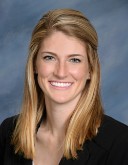Pediatric Pathology | Education and Training
Pediatric Pathology Fellowship
Boston Children’s Hospital offers a one-year ACGME-approved training program in pediatric pathology, allowing subspecialty board certification in pediatric pathology. In anatomic pediatric pathology, the training program is based primarily upon the study and reporting of surgical specimens and the performance of autopsies. In addition, fellows receive training by pediatric subspecialty pathologists in the fields of pulmonary pathology, neuropathology, dermatopathology, gastrointestinal pathology, cardiac pathology (congenital heart), renal pathology, electron microscopy, hematopathology, immunopathology, cytogenetics, and molecular diagnostics. The program includes rotations at the Brigham and Women’s Hospital in perinatal and placental pathology.
Types and numbers of appointments
A total of three positions are offered. The level of appointment is based upon the applicant’s previous pathology training and experience. Board certification or eligibility in anatomic pathology is generally required, although exceptional candidates may enter the fellowship after two years of AP training. A second-year fellowship, with a focus in one area of pediatric pathology and/or research, may also be available.
Contact
Address inquiries to:
Juan Putra, M.D. Program Director
Department of Pathology, Farley 195
Boston Children’s Hospital
300 Longwood Avenue
Boston, MA 02115
Email: juan.putra@childrens.harvard.edu
Katelynn Aceto, MS, C-TAGME Program Manager
Department of Pathology – 190 Farley-BCH 3027
Boston Children’s Hospital
300 Longwood Avenue
Boston, MA 02115
Phone: 857-218-3283
Fax: 617-730-0207
Email: katelynn.aceto@childrens.harvard.edu
Pediatric Pathology Clinical Fellows 2024-2025

Erin Barletta, MD, MS
Medical School: Wayne State School of Medicine
Residency: Keck School of Medicine, University of Southern California

Charmaine Ilagan, MD
Medical School: St. George’s University School of Medicine
Residency: Medstar Georgetown University Hospital
Surgical Pathology Fellowship: University of Texas MD Anderson Cancer Center

Lance Truong, DO
Medical School: Touro University
Residency: Warren Albert School of Medicine, Brown University
Facilities
Boston Children’s Hospital is an affiliate and immediate neighbor of Harvard Medical School. We are located within the Longwood Medical community, home to several world-renowned institutions and resources such as Brigham and Women’s Hospital, Beth Israel Deaconess Medical Center, Dana-Farber Cancer Institute, Harvard School of Public Health, and the Countway Medical Library of Harvard.
Curriculum
Rotation summary
In addition to rotations on the general pediatric surgical pathology, gastrointestinal pathology, and autopsy services, the curriculum includes focused rotations in perinatal pathology, pediatric neuropathology, and pediatric hematopathology. Elective time is available for clinical and/or nonclinical pursuits. Academic time without clinical responsibilities provides an opportunity for the fellow to engage in a project with the goal of peer-reviewed publication.
Application instructions
Applicants must be either graduates of approved medical schools in the United States and Canada or hold a valid ECFMG certificate. Applications are available upon written/email request and should be completed by November 30 for appointments beginning July 1 of the following year. However, it is recommended that applicants apply one or two years in advance of the fellowship start date, as the program often fills within this time frame.
Observership Program Application Instructions
For international physicians who are interested in observing our physicians please contact our Observership Program here:
Boston Life
Information on housing, transportation and life in Boston is available here.
Links to Graduate Programs
Our faculty interact with students from the following Harvard University graduate programs:
Biological and Biomedical Sciences
We also participate in teaching an HMS Pathology course for graduate students:
Pathology of Human Disease: Human Biology and Translational Medicine 2000

